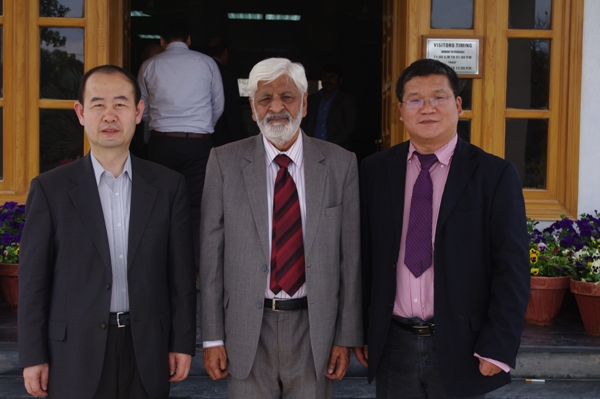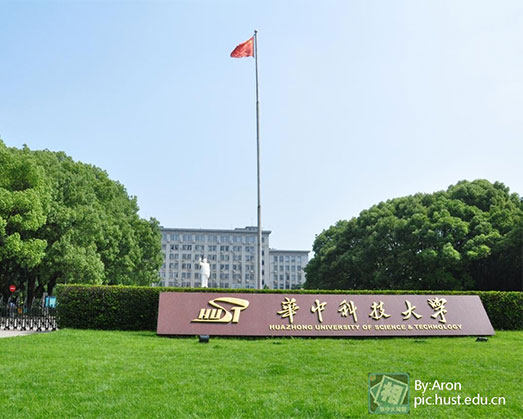LZU Stands Out in Foreign Agricultural Cooperation
Prof. Li Fengmin and Prof. Xiong Youcai visited the University of Sargodha in Pakistan and attended the International Symposium on“Strategies for Overcoming Food Security Problems through Utilization of Rain-fed Areas ” from March 25 to 29. More than 500 representatives from Jordan, Turkey, Sudan, Uzbekistan and other countries attended the conference. The introduction to LZU’s research on agro-ecological system in arid regions attracted the attention of symposium participants.
On March 25, Prof. Mohammad Akram Chaudhary, President of the University of Sargodha, met with Prof. Li and Prof. Xiong. He spoke highly of previous cooperation of the two sides and hoped for greater progress in the future. After a brief introduction to LZU and the progress of bilateral cooperation, Prof. Li exchanged views with President Chaudhary on scientific research, personnel exchange and cooperation plans, and invited President Chaudhary to pay a visit to LZU.

On March 26, Mahesh Pradhan from UNEP and Prof. Li respectively delivered a speech at the opening ceremony of the symposium. Mr. Pradhan recognized LZU’s remarkable progress in arid agriculture and ecological restoration research and the contribution to the cooperation between developing countries. Prof. Li stressed that many Central Asian countries, Pakistan for example, were good platforms to develop rain-fed agriculture, for the geographic and climatic conditions of these countries were similar to those in the northwest of China, and that the agricultural trials and experiments in Kenya and Ethiopia had achieved remarkable results.
Prof. Li and Prof. Xiong made two academic reports “The Significance of Dryland Crop System in the Chinese Loess Plateau to the Development of Animal Husbandry” and “The Spread of China’s Rain-fed Agricultural System: Developing Countries’ Strategy to Ensure Food Safety and Respond to Climate Change”. Academician Ashraf spoke highly of these two reports and stressed that China’s rain-fed agriculture set up a model for the cooperation among developing countries. Dr. Munir Ozturk, Academician of the Islamic Academy of Sciences (IAS) in Turkey, believed China’s rain-fed agricultural technology could also be applied to Turkey. Several institutions also expressed their desire to cooperate with LZU and inquired about the details of cooperation.
Later, Prof. Li and Prof. Xiong, in the company of Academician Ashraf, visited the typical agricultural area of Pakistan on March 28 and worked out a preliminary cooperation plan.
After the symposium, LZU’s research team (The Arid Agriculture and Ecological Restoration Project Research Center) was reported by Nama-i-waqt, Daily Ausaf and other well-known media in Pakistan.
News&Opinion
 more
more- Chinese Higher Education Exhibition Successfully...
- Two students offered university admissions after...
- The Real Cost of Education in China
- Sex education urged among China's minors
- Herbal Diet Training Course of shanghai medical ...
- On the Pulse: Chinese Medical Students Head to t...
- More Than 100 University of Chicago Professors V...
- To Pay or Not to Pay: Funding Your Chinese Langu...
Policy&Laws
further strengthening the visa regulation of int...
After the promulgation of new Immigration Control Act in China, Entr...
New Regulations for Visa
Attention Dear all, The laws and regulations for visa (residenc...
Fujian Government Scholarship
The government of Fujian Province has established the fujian Govern...





 print
print  email
email  Favorite
Favorite  Transtlate
Transtlate 







